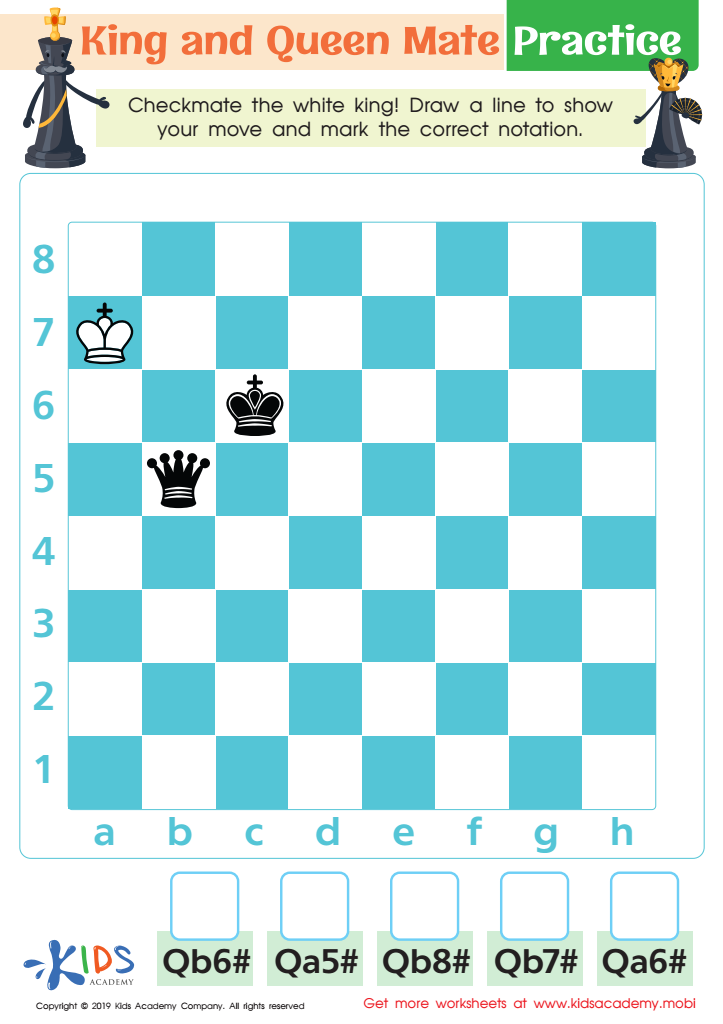Learning checkmate techniques Worksheets for Kids
1 filtered results
-
From - To


King and Queen Mate Practice Worksheet
Question/Answer
What does the Learning checkmate techniques skill mean when it comes to Grade 1 Chess learning?
The "Learning checkmate techniques" skill in Grade 1 Chess learning refers to teaching beginners the fundamental strategies and moves required to successfully checkmate the opponent's king. This involves understanding specific patterns and setups that lead to an inescapable threat against the king, marking the end of a chess game.
How to train the Learning checkmate techniques skill in Grade 1 students learning about Chess?
To train Grade 1 students in learning checkmate techniques, start with simple, one-move checkmates using the queen and rook. Use a chessboard to demonstrate scenarios, and guide them through the process of trapping the king. Incorporate fun, interactive puzzles that focus on checkmate patterns. Regular practice with supportive feedback helps reinforce their understanding and application of these techniques.
How does the mastery of the Learning checkmate techniques skill affect a student's performance at an early age?
Mastering checkmate techniques at an early age significantly boosts a student's cognitive and problem-solving skills. This mastery enhances strategic thinking, planning abilities, and foresight, which are beneficial in both academic and real-life situations. It fosters patience, concentration, and discipline, positively impacting overall performance in school and beyond.
 Assign to the classroom
Assign to the classroom












